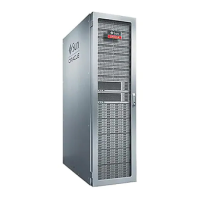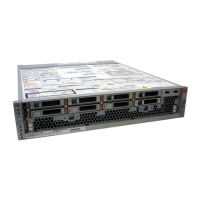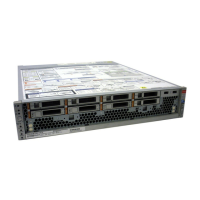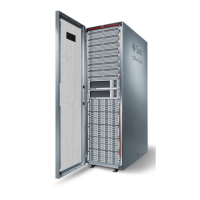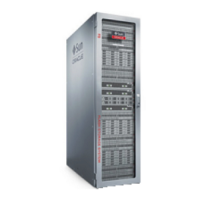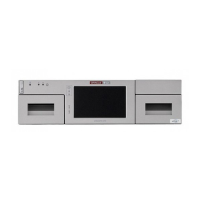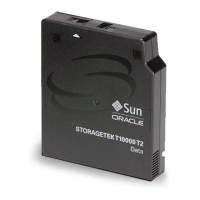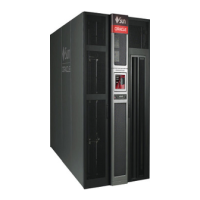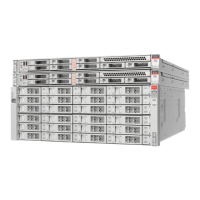Configuring SRP Targets (CLI)
TABLE 34
SAN Terminology
Term Description
SCSI Target A SCSI Target is a storage system end-point that
provides a service of processing SCSI commands and
I/O requests from an initiator. A SCSI Target is created
by the storage system's administrator, and is identified
by unique addressing methods. A SCSI Target, once
configured, consists of zero or more logical units.
SCSI Initiator A SCSI Initiator is an application or production system
end-point that is capable of initiating a SCSI session,
sending SCSI commands and I/O requests. SCSI
Initiators are also identified by unique addressing
methods (See SCSI Targets).
Logical Unit A Logical Unit is a term used to describe a component
in a storage system. Uniquely numbered, this creates
what is referred to as a Logicial Unit Number, or LUN. A
storage system, being highly configurable, may contain
many LUNS. These LUNs, when associated with one
or more SCSI Targets, forms a unique SCSI device,
a device that can be accessed by one or more SCSI
Initiators.
iSCSI Internet SCSI, a protocol for sharing SCSI based storage
over IP networks. The appliance supports the SCSI-3
Persistent Reservations specification.
iSER iSCSI Extension for RDMA, a protocol that maps
the iSCSI protocol over a network that provides
RDMA services (i.e. InfiniBand). The iSER protocol is
transparently selected by the iSCSI subsystem, based on
the presence of correctly configured IB hardware. In the
CLI and BUI, all iSER-capable components (targets and
initiators) are managed as iSCSI components.
FC Fibre Channel, a protocol for sharing SCSI based storage
over a storage area network (SAN), consisting of fiber-
optic cables, FC switches and HBAs. The appliance
supports 4GB and 8GB Fibre Channel Arbitrated Loop
(FC-AL) topologies.
SRP SCSI RDMA Protocol, a protocol for sharing SCSI based
storage over a network that provides RDMA services (i.
e. InfiniBand).
IQN An iSCSI qualified name, the unique identifier of a
device in an iSCSI network. iSCSI uses the form iqn.
date.authority:uniqueid for IQNs. For example, the
appliance may use the IQN: iqn.1986-03.com.sun:02:
c7824a5b-f3ea-6038-c79d-ca443337d92c to identify
one of its iSCSI targets. This name shows that this is an
iSCSI device built by a company registered in March of
1986. The naming authority is just the DNS name of the
company reversed, in this case, "com.sun". Everything
following is a unique ID that Sun uses to identify the
target.
Configuring the Appliance 159
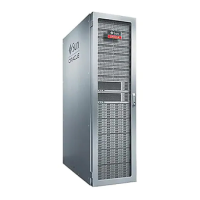
